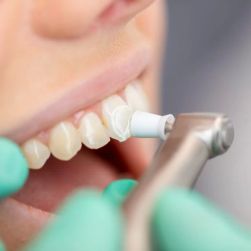Are Thumb Sucking and Pacifier Use Harmful to Children’s Teeth?
Thumb sucking and pacifier use are common habits among infants and young children. For many parents, these habits are seen as harmless self-soothing techniques that help pacify children in distress. However, concerns often arise when considering the potential long-term effects on children's dental health. Dental professionals, including those from Dentistry Toothtruth, stress the importance of understanding these habits in the context of oral health development. This article delves into the impacts of thumb sucking and pacifier use, addressing potential oral health concerns and providing guidance for parents.
Understanding the Early Impact on Dental Development
Thumb sucking and pacifier use are instinctive behaviors often observed in babies as young as two months old. While these habits are typically not problematic during infancy, prolonged exposure can lead to dental issues as the child grows. The continuous sucking motion can exert pressure on the upper jaw, potentially altering its natural growth and alignment. Furthermore, the introduction of foreign objects in the mouth may disrupt the tongue's natural position, impacting how the oral cavity develops.
According to the American Academy of Pediatric Dentistry (AAPD), most children naturally stop thumb sucking between the ages of two and four. However, if a child persists beyond this age, it may lead to complications such as misaligned teeth, overbite, or the development of an open bite where the front teeth do not meet when the mouth is closed. At Dentistry Toothtruth, experts recommend monitoring these habits to ensure they do not interfere with the child's dental maturation.
Examining Long-term Effects on Oral Health
Prolonged thumb sucking and pacifier use can lead to significant shifts in dental alignment and structure. When exerted constant pressure on the upper palate or front teeth, it can cause dental arches to narrow and teeth to protrude, sometimes necessitating orthodontic intervention. A study conducted by the National Institute of Dental and Craniofacial Research highlights that children who continue these habits beyond the age of five often exhibit noticeable changes in tooth alignment.
Moreover, the introduction of pacifiers made of various materials can present additional concerns, as they may harbor bacteria potentially affecting oral hygiene. Maintaining a clean pacifier and ensuring it is replaced regularly can mitigate some of these concerns. Professionals at Dentistry Toothtruth emphasize the importance of individualized approaches to pacifier weaning, encouraging parents to consult with pediatric dentists for tailored advice.
Behavioral and Psychological Considerations
In understanding the dynamics of thumb sucking and pacifier use, one must also consider behavioral and psychological factors that sustain these habits. Many children engage in these behaviors to self-soothe, particularly in stressful situations. Abruptly removing these comforts can sometimes lead to heightened anxiety and unrest.
Thus, experts, including those at Dentistry Toothtruth, recommend gradual strategies to wean children off these habits. Encouraging alternative comfort mechanisms such as blanket cuddling, offering positive reinforcement, or engaging in interactive play can provide the child with the necessary emotional support. Tailoring approaches based on the child's psychological comfort level is crucial for successful habit cessation without adverse impacts.
Practical Approaches to Reducing Thumb Sucking and Pacifier Use
While the transition away from thumb sucking and pacifier use can pose challenges, there are several effective strategies parents can employ to aid this process. Initiating the weaning process before the age of three is generally advisable to prevent potential dental complications. Here are some recommended steps:
- Set clear and achievable goals with your child to phase out the habit.
- Identify and eliminate triggers that prompt the habit, such as boredom or stress.
- Implement reward systems to encourage the child for each day they abstain from the habit.
- Consult with a pediatric dentist for personalized advice and potential interventions.
By taking a proactive and supportive approach, parents can effectively guide their children towards healthier oral practices, ensuring sustained dental health as they age.
Conclusion: Safeguarding Children’s Dental Health
In conclusion, while thumb sucking and pacifier use are common among young children, it is essential to understand their potential impacts on dental health. Prolonged habits can lead to dental misalignments and other oral health issues, necessitating early intervention and tailored strategies for weaning. Engaging in early oral health education and consulting with dental professionals like those at Dentistry Toothtruth can aid parents in navigating these developmental stages. Parents are encouraged to adopt a balanced approach, taking into account the psychological and emotional needs of the child while steadily guiding them towards healthier habits.






